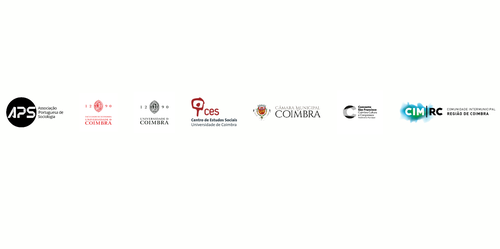Call for papers | Families and Life Course
Coordinators:
Vanessa Cunha (ICS-ULisboa)
Magda Nico (CIES, ISCTE-IUL)
Cláudia Casimiro (CIEG, ISCSP-ULisboa)
The establishment of new frontiers and bridges between The Sociology of the Family and the Life Course Perspective, both as a theoretical paradigm and as a diversified palette of methodological instruments, has been one of the major goals of the ST-FCV.
With the growth and diversification of this field, the ST-FCV intends to stimulate:
- Critical and innovative approaches towards continuities and ruptures in the formation and family processes.
- The articulation of diversified and interdisciplinary perspectives on families, their members, and the relationships between them.
- The study of the interdependence between family dynamics and individual trajectories.
- The reflection and knowledge sharing about central and contiguous problematics to these research areas.
- The consolidation and innovation of methodological designs, processes, and techniques about the individual’s life course and families.
With these objectives in mind, as well as the theme of this Congress - Polarized societies? Challenges for sociology - the ST-FCV calls for the presentation of abstracts on four major avenues of investigation (which are not mutually exclusive):
- Inequalities in Families, or
the historical, cultural, and social location of families
We strongly encourage participants to share research results on the role of the family as a producer and reproducer of social inequalities with short, medium, and long-term repercussions on the life of its members; on how these processes of production and reproduction of inequalities have been changing and developing between and within generations, namely with an impact on childhood, youth, the transition to adulthood, or old age. This will allow the discussion and consolidation of the theoretical argument of inequalities as a process over time and not just across territories.
2. Belongings, Identities, and Agency, or
the strategic adaptation of individuals
The relationship between the public and the private spheres of the family is also another topic particularly welcome at this Congress. This relationship can be studied through: the analysis of the construction of political (public) identity within the family (reproduction versus intergenerational rupture); the uses of time; the conciliation between the personal and the professional spheres; the use of digital technology and its appropriation, domestication, and influence on family life, relationships, autonomy, intimacy, norms or, for instance, in transnational families.
3. Interdependencies in the Family, or
the ways trajectories are interconnected
Contribute to the study of the family as an observatory of the interdependence of social life. Here we encourage the study of the consequences of life events such as conjugality or marriage, fertility and infertility, birth, illness, death and mourning, motherhood, paternity, and parenting, co-residence, divorce, child, and elderly care, as well as many other impacts and effects on the lives of family members, in both private and public spheres, namely those resulting from the Pandemic COVID-19, with lockdowns, remote learning, teleworking, access to healthcare, etc..
4. Methodological Imagination of the Life Course, or
how to study the temporalities of lives
We call for the presentation of communications that link life course analysis with the study of family life and focus on the analysis of social change through the discussion of methodological strategies that assume the importance of temporality (e.g., life histories, family histories, follow-up studies, event history analysis, sequence analysis, etc.) and processes such as de-standardization, institutionalization, pluralization, or differentiation of the life course.
These will be excellent opportunities to bring the Portuguese reality (and eventually others) and the theoretical principles of the life course into dialogue, thus materializing the Portuguese contribution to the field of Families and Life Course.
We are very pleased to invite colleagues who, from both the academic and the professional world - associations, organizations, foundations, central, regional, or local government - work directly with or about families, their problems, and temporalities. The sharing of these academic and professional experiences is very welcome to the Congress.
The Coordination of the ST-FCV invites all interested people, coming from the academic and non-academic contexts, to submit abstracts via the Congress platform. There are different modalities of participation at the Congress: oral communications, posters, and visual documents (e.g., short films more focused on projects, interventions, etc.).
The criteria that will be privileged in the evaluation of the abstracts are:
- For the academic context (basic/pure or applied research)
- Goals (general and specific)
- Theoretical framework
- Methodology
- Results (theoretical/theoretical-practical)
- Conclusions
- Outside the academic context (applied research, action research)
- Goals
- Diagnosis of intervention context (population and/or intervention contexts)
- Methodology (even if brief)
- Results (theoretical-practical/practical)
- Conclusions/Evaluation (project evaluation, trend analysis, response to practical problems, etc.)
The ST-FCV may select the best communications to be proposed for publication in in the journal SOCIOLOGIA ON LINE.
PDF Version
